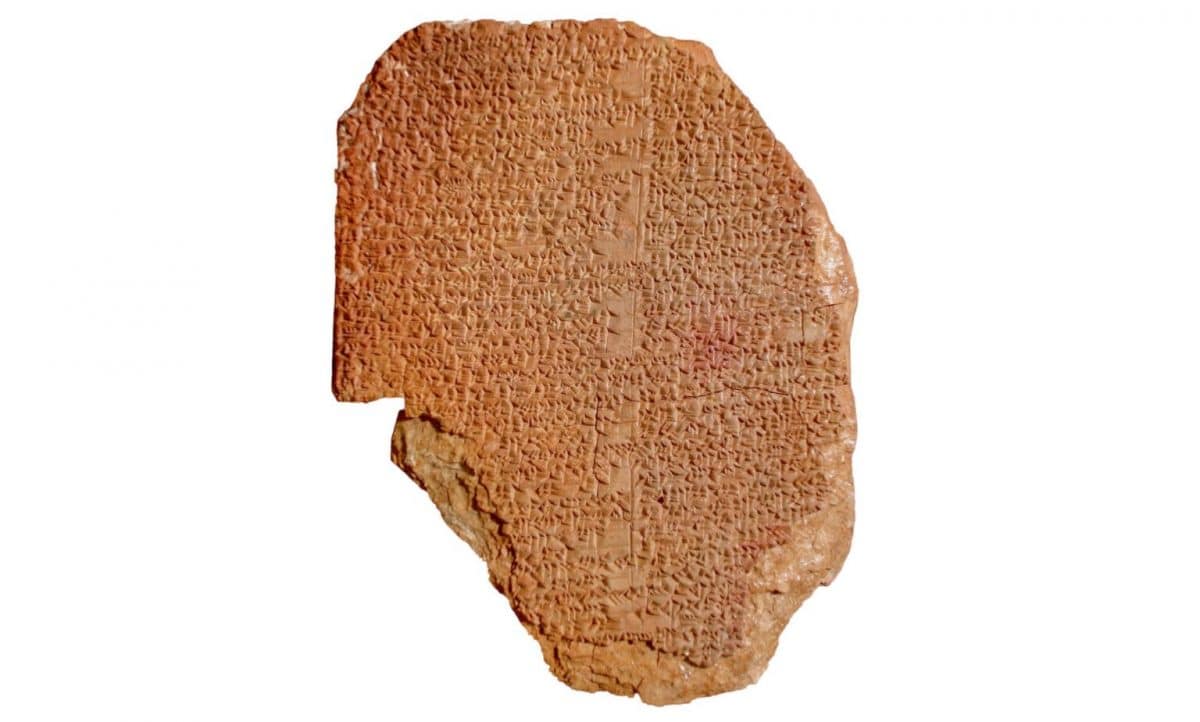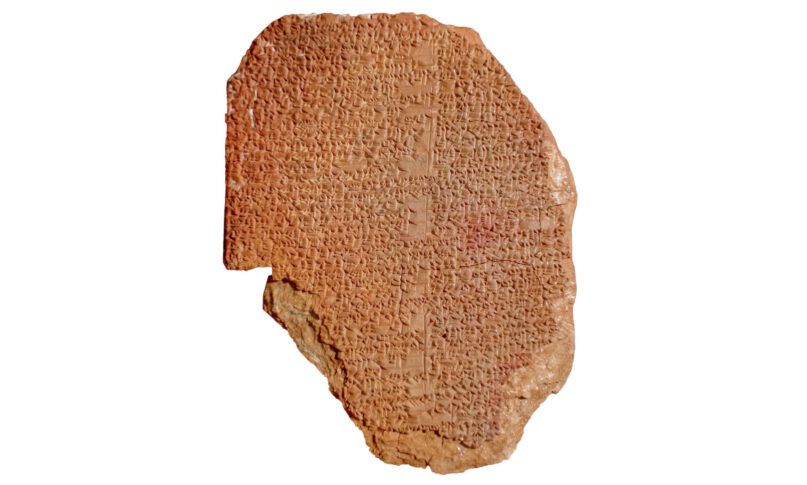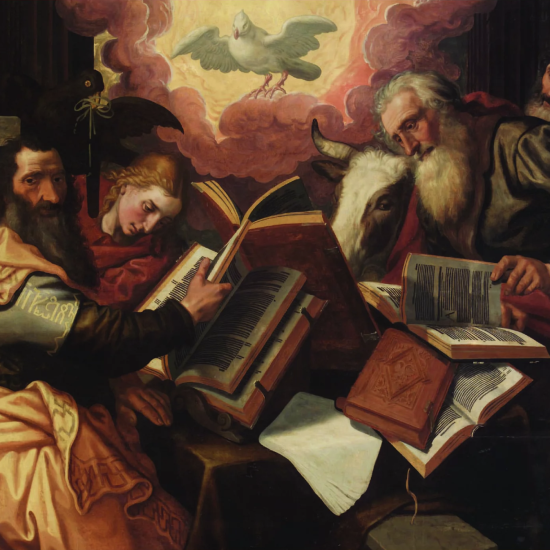
(RNS) — A federal judge has ordered Hobby Lobby, the arts and crafts chain whose president is Museum of the Bible founder Steve Green, to forfeit an ancient tablet bearing a rare fragment of the Epic of Gilgamesh.

The recently confiscated tablet bearing a fragment of the Epic of Gilgamesh. Image courtesy of the DOJ
The clay tablet, roughly the size of an iPhone, was originally brought to the United States by an antiquities dealer who purchased it in London in 2003, according to the Justice Department. The artifact was encrusted with dirt at the time and its cuneiform script was completely hidden.
Scholars and art experts later determined that the script was part of the ancient Mesopotamian Epic of Gilgamesh, one of the world’s oldest works of religious literature. It was acquired by Hobby Lobby in 2014 from Christie’s auction house for the company’s collections at the Museum of the Bible.
The item was part of the exhibitions at the Museum of the Bible when it opened in November 2017 and remained on display until 2019, when it was confiscated by federal agents.
“Before displaying the item in 2017, the museum informed the Embassy of Iraq that we had the item in our possession, but extensive research would be required to establish provenance,” said Charlotte Clay, the museum’s media relations manager, in an emailed statement.
“We have supported the Department of Homeland Security’s efforts to return this Gilgamesh fragment to Iraq,” Clay said.
“Christie’s auction house, the source and importer of the item, is now the subject of a lawsuit filed by Hobby Lobby,” said Clay. The company filed the suit against Christie’s in 2020 for providing them with false information about the tablet’s provenance.
In 2017, Hobby Lobby agreed to return nearly 4,000 artifacts to Iraq after they were found to have been looted from Iraqi archaeological sites. As part of the settlement with the Justice Department, the company was also required to pay $3 million to the U.S. government.
Two years later, the Museum of the Bible acknowledged buying more than a dozen ancient Bible fragments that were later suspected of being stolen.
In 2020, the Museum of the Bible announced it determined that more than 11,000 clay and papyri items in its collection had dubious provenance. It is working to clarify the questions of provenance and to determine the items’ final destinations.
Green, a billionaire who avidly began building his collection of rare Bibles and related artifacts more than a decade ago, has admitted that he sometimes took bad advice as a novice in what is one of the most precarious areas of collecting. In a 2020 statement he said, “In 2009, when I began acquiring biblical manuscripts and artifacts for what would ultimately form the collection at Museum of the Bible, I knew little about the world of collecting.
“If I learn of other items in the collection for which another person or entity has a better claim, I will continue to do the right thing with those items,” Green said.
Green, the son of Hobby Lobby founder David Green, is chairman of the board for the Museum of the Bible. The museum’s mission is “to invite all people to engage with the transformative power of the Bible,” according to its website.






